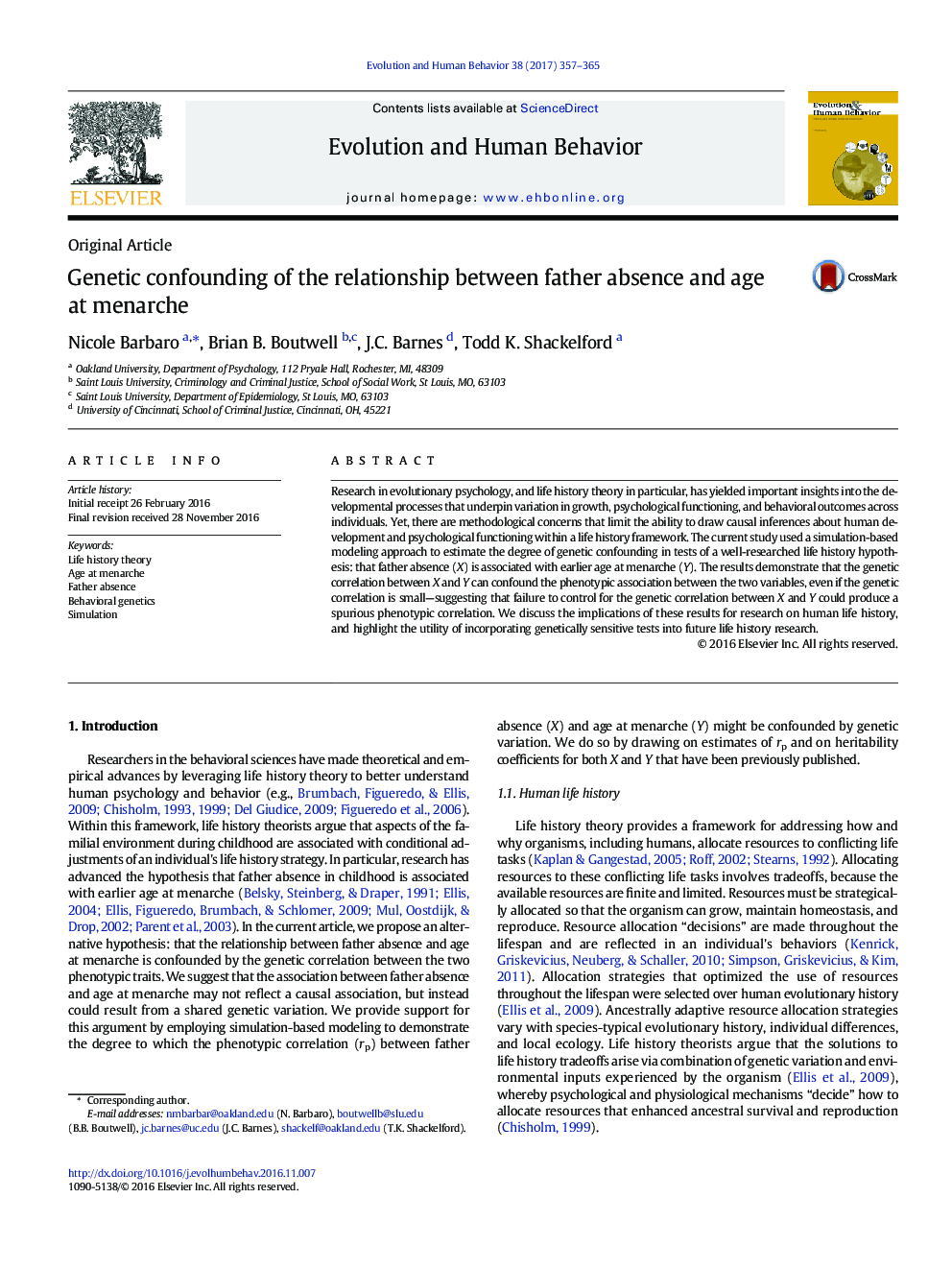| Article ID | Journal | Published Year | Pages | File Type |
|---|---|---|---|---|
| 5044778 | Evolution and Human Behavior | 2017 | 9 Pages |
Research in evolutionary psychology, and life history theory in particular, has yielded important insights into the developmental processes that underpin variation in growth, psychological functioning, and behavioral outcomes across individuals. Yet, there are methodological concerns that limit the ability to draw causal inferences about human development and psychological functioning within a life history framework. The current study used a simulation-based modeling approach to estimate the degree of genetic confounding in tests of a well-researched life history hypothesis: that father absence (X) is associated with earlier age at menarche (Y). The results demonstrate that the genetic correlation between X and Y can confound the phenotypic association between the two variables, even if the genetic correlation is small-suggesting that failure to control for the genetic correlation between X and Y could produce a spurious phenotypic correlation. We discuss the implications of these results for research on human life history, and highlight the utility of incorporating genetically sensitive tests into future life history research.
